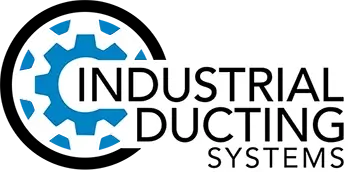Data Center Ducting Solutions
Data centers represent one of the most demanding environments for precision air quality management, where maintaining optimal temperature, humidity, and particulate levels is critical for equipment reliability and operational continuity. These facilities house thousands of heat-generating servers and networking equipment that require sophisticated cooling systems and contamination control measures.
Modern data centers consume enormous amounts of energy, with cooling systems typically representing 30-40% of total facility energy consumption. The trend toward higher-density computing and edge computing facilities has intensified cooling requirements while demanding more efficient air handling systems. Additionally, the growing adoption of liquid cooling systems presents fresh air quality management challenges.
Air quality challenges in data centers include particulate contamination that can cause equipment failures, gaseous contamination from construction materials and external sources, and humidity control that affects both equipment performance and static electricity generation. The industry's emphasis on uptime and reliability makes air quality management a critical operational concern.
Specific Air Quality Requirements & Regulations
Data centers must maintain strict environmental conditions as specified by industry standards including ASHRAE TC 9.9 and TIA-942. These standards establish temperature ranges of 64.4-80.6°F (18-27°C) and relative humidity ranges of 20-80% for equipment operation, with tighter ranges recommended for optimal performance.
Particulate contamination levels must be maintained below ISA-S71.04 Class G1 standards, requiring less than 200 micrograms per cubic meter of particles larger than 0.5 microns. Gaseous contamination must be controlled to prevent corrosion of electronic components, with specific limits for hydrogen sulfide, sulfur dioxide, chlorine, and ammonia.
While data centers are not subject to traditional industrial air quality regulations, they must comply with building codes and fire safety requirements. NFPA 75 establishes requirements for fire protection in electronic equipment rooms, including ventilation system design and smoke management.
Temperature control is critical for data center operations. Supply air temperatures typically range from 64-75°F, while return air temperatures may reach 80-85°F. Precision is essential, with temperature variations of ±2°F or less required for optimal equipment performance.
Construction Process & System Design Considerations
Data center air handling systems require precision design and construction to ensure reliable operation and energy efficiency. Construction must address the critical nature of data center operations, often requiring redundant systems and uninterrupted operation during construction activities.
The construction process must coordinate with the complex infrastructure requirements of data centers, including power distribution, cable management, and fire suppression systems. Raised floor construction is common, requiring careful coordination of underfloor air distribution systems.
Ductwork design must provide precise airflow control with minimal pressure drop to optimize energy efficiency.
Filtration systems must provide high-efficiency particulate removal while maintaining low pressure drop. Multi-stage filtration with pre-filters and final filters is common, with MERV 11-14 filters typically specified for data center applications.
Technical Specifications & Performance Requirements
Data center air handling systems typically require 10,000 to 1,000,000+ CFM depending on facility size and heat load. Individual server rack cooling may require 1,000-5,000 CFM, while high-density computing equipment may require 10,000+ CFM per rack.
Ductwork materials must provide clean, non-contaminating surfaces. Galvanized steel with phenolic coatings is common, while stainless steel may be specified for critical applications. All materials must minimize outgassing and particle generation.
Precision airflow control requires low-leakage construction with sealed joints and access panels. Static pressure requirements typically range from 2-6 inches of water column, depending on system design and filtration requirements.
Energy efficiency is critical in data center design. Ductwork must be designed for minimal pressure drop while providing precise airflow control. Thermal insulation is essential to prevent condensation and maintain temperature control.
How Industrial Ducting Systems Delivers Solutions
Industrial Ducting Systems understands the critical requirements of data center environments, where precision air quality management directly impacts operational reliability and energy efficiency. Our comprehensive approach addresses both environmental control and energy optimization requirements.
Our 2D CAD design services provide detailed system layouts that integrate with your facility's complex infrastructure requirements.
Our expertise in precision air handling ensures that systems meet the stringent requirements of data center operations. We provide specialized components including low-leakage construction, precision dampers, and high-efficiency filtration systems.
Our logistics coordination addresses the critical nature of data center operations, understanding that downtime is not acceptable and construction must be carefully planned around operational requirements. We provide installation approaches that ensure continuous operation while upgrading or expanding air handling systems.
Experience the Industrial Ducting Systems Advantage
Precision environmental control, energy-efficient design, zero-downtime installation—discover why data center operators trust us with their most critical air quality infrastructure. Let's design a system that exceeds your expectations.
